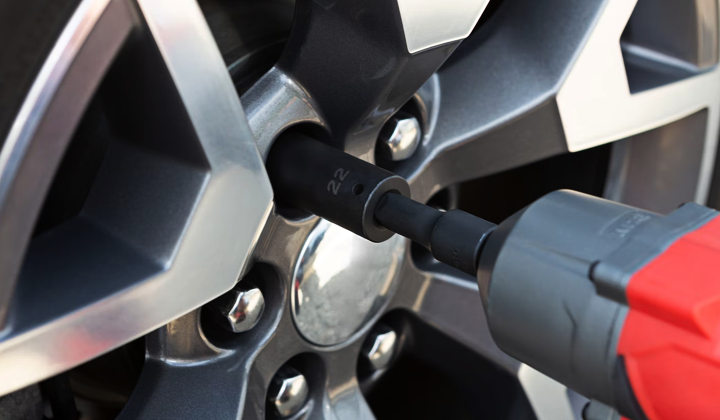
What to check when doing your seasonal tire change?
Published on March 22nd, 2023
Winter is finally coming to an end and the time to install your summer tires is getting near.
Spring is at our doors and you'll soon have to think about making the switch from your winter tires to your summer tires. But before you install them, it's important to check a few things to maximize their performance and extend their life.
Here's what you should check and do when installing your summer tires;
- First, check the stud depth of your tires. It is recommended that you replace tires with a tread depth of 4/32 or less to ensure optimal wet traction and performance.
If you don't have a tire gauge, a trick is to use a $2 coin to check the tread depth. If the silver part is visible, your tires have nearly reached the end of their life and it would be highly recommended to replace your tires.
- Once you have installed your summer tires, don't forget to check the air pressure and adjust it to your vehicle's needs. The optimum pressure can be found in the manual or on the vehicle door.
Don't forget to check the pressure at least once a month, as it can fluctuate with the weather and you are never safe from a tire air leak.
- To protect your tires from UV rays, the elements and increase their appearance, you can treat them with a protective coating. This will help extend their life and maintain their performance throughout the summer.
- Finally, to maximize the life of your tires, it is recommended that you rotate your tires every 6,000 to 8,000 km. This will allow for more even wear and extend the life of your tires, allowing you to take full advantage of their performance.
Now that your summer tires are installed, here's what you should do with your winter tires;
- Inspect your tires for signs of uneven wear. If your tires appear unevenly worn, it could be a sign of a larger problem with your car. It's a good idea to have your car inspected and aligned, which will prevent premature wear on your summer tires.
- Measure the depth of your tires so that if they are due for replacement, you can get a head start on preparing for the next winter season.
- Store your tires in a place where they won't be exposed to the sun and the elements, so UV rays won't cause your tires to crack prematurely.
By following these simple tips, you'll be able to enjoy the summer season while keeping your vehicle safe and performing well. Remember, well-maintained tires can make all the difference in terms of driving performance, fuel economy and longevity. So take the time to check the condition of your tires and follow these recommendations for safe and trouble-free driving during the warm season!

